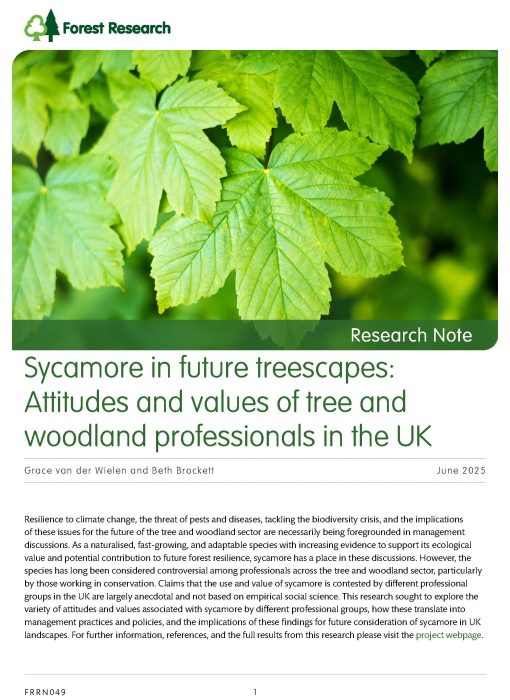Overview
Resilience to climate change, the threat of pests and diseases, tackling the biodiversity crisis, and the implications of these issues for the future of the tree and woodland sector are necessarily being foregrounded in management discussions. Sycamore is a naturalised, fast-growing, and adaptable species with increasing evidence to support its ecological value and potential contribution to future forest resilience. As such, it has a place in these discussions. However, the species has long been considered controversial among professionals across the tree and woodland sector, particularly by those working in conservation. Claims that the use and value of sycamore is contested by different professional groups in the UK are largely anecdotal and not based on empirical social science. This research sought to explore the variety of attitudes and values associated with sycamore by different professional groups, how these translate into management practices and policies, and the implications of these findings for future consideration of sycamore in UK landscapes.

